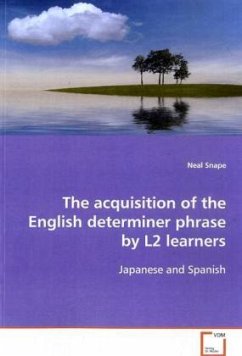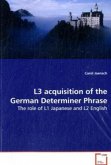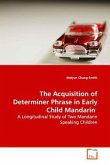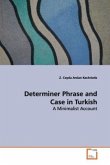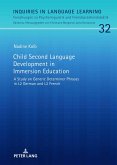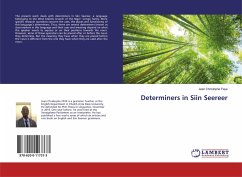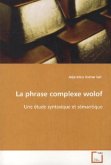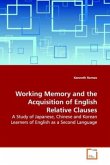The acquisition of articles in English is
notoriously difficult for second language (L2)
learners of languages without articles. The current
thesis extends this work on L2 English by
investigating speakers whose L1s are Japanese and
Spanish. Japanese is an article-less language, while
Spanish marks definiteness and plural, like English.
Specifically, the investigation tests the success of
the existing hypotheses in accounting for the
performance of these speakers in a series of
experimental tasks. Additionally it examines whether
a nominal mapping parameter proposed by Chierchia
(1998), which determines whether bare NPs in a
language are argumental, predicative or of both
types, provides insight into L2 learners knowledge
of the English nominal domain. Overall, the Spanish
L2 learners behaved much more like the native
speakers on all the tasks. It is argued that the
findings are consistent with the Full
Transfer/Partial Access (Hawkins & Chan 1997) and
Full Transfer/Full Access (Schwartz & Sprouse 1994,
1996) hypotheses.
notoriously difficult for second language (L2)
learners of languages without articles. The current
thesis extends this work on L2 English by
investigating speakers whose L1s are Japanese and
Spanish. Japanese is an article-less language, while
Spanish marks definiteness and plural, like English.
Specifically, the investigation tests the success of
the existing hypotheses in accounting for the
performance of these speakers in a series of
experimental tasks. Additionally it examines whether
a nominal mapping parameter proposed by Chierchia
(1998), which determines whether bare NPs in a
language are argumental, predicative or of both
types, provides insight into L2 learners knowledge
of the English nominal domain. Overall, the Spanish
L2 learners behaved much more like the native
speakers on all the tasks. It is argued that the
findings are consistent with the Full
Transfer/Partial Access (Hawkins & Chan 1997) and
Full Transfer/Full Access (Schwartz & Sprouse 1994,
1996) hypotheses.

